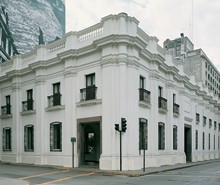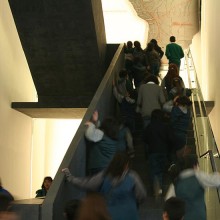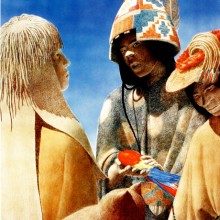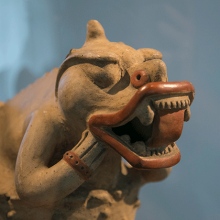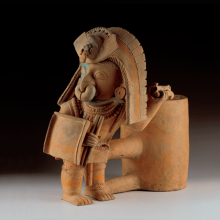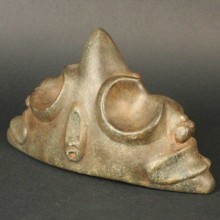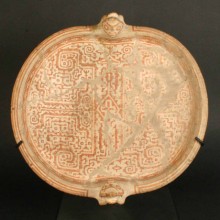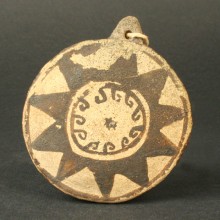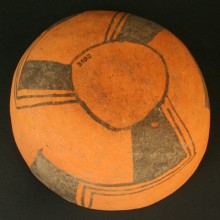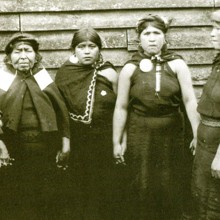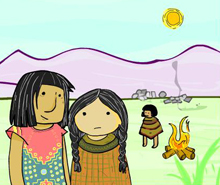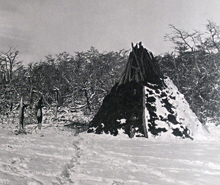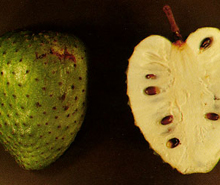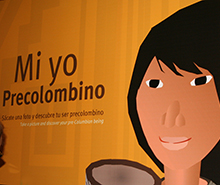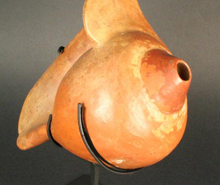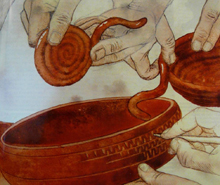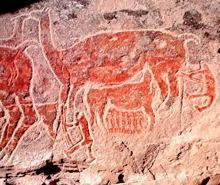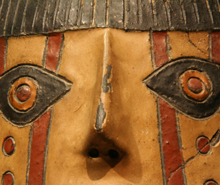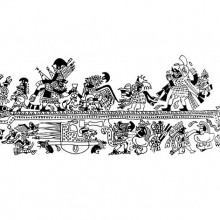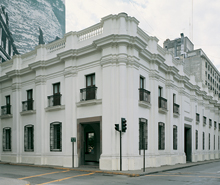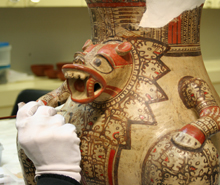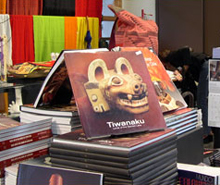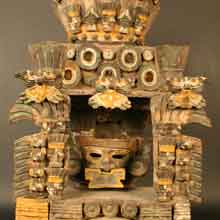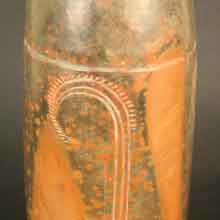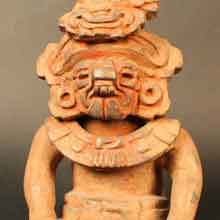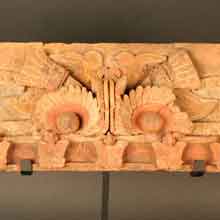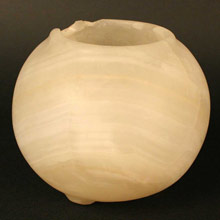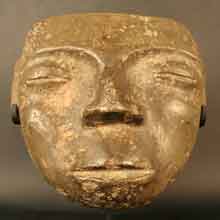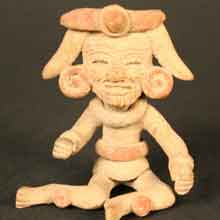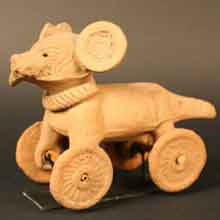The first urban centers with pyramid temples, headquarters of the growing ruling and priest elites, arose from earlier rural societies like Tlatilco. This process culminated in the central high plains with the emergence of Teotihuacán, México`s first big city and the capital of a powerful state, and in the Oaxaca region with the development of Monte Albán. Some time later the loss of these states’s influence gave rise to the development of civilizations, such as the Toltecs and Mixtecs, which led to the formation of the Aztec empire.




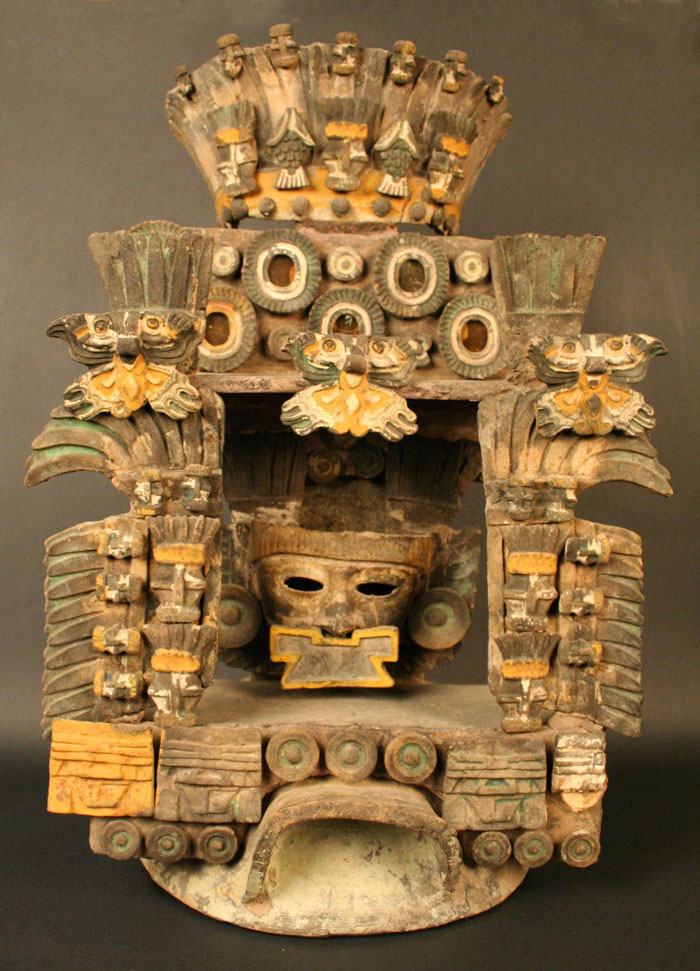
Materials: Ceramic
Clásico 300 - 600 d.C. Fases Xolalpan, Metepec y Tlamimilolpa Tardía.
Measures: 600 mm de alto
Part Code: MCHAP 0613-0614
See the profile of this pieceMaterials: Ceramic
Clásico Tardío 1200 - 900 a.C. San Juan.
Measures: 230 mm de alto
Part Code: MCHAP 0568
See the profile of this piece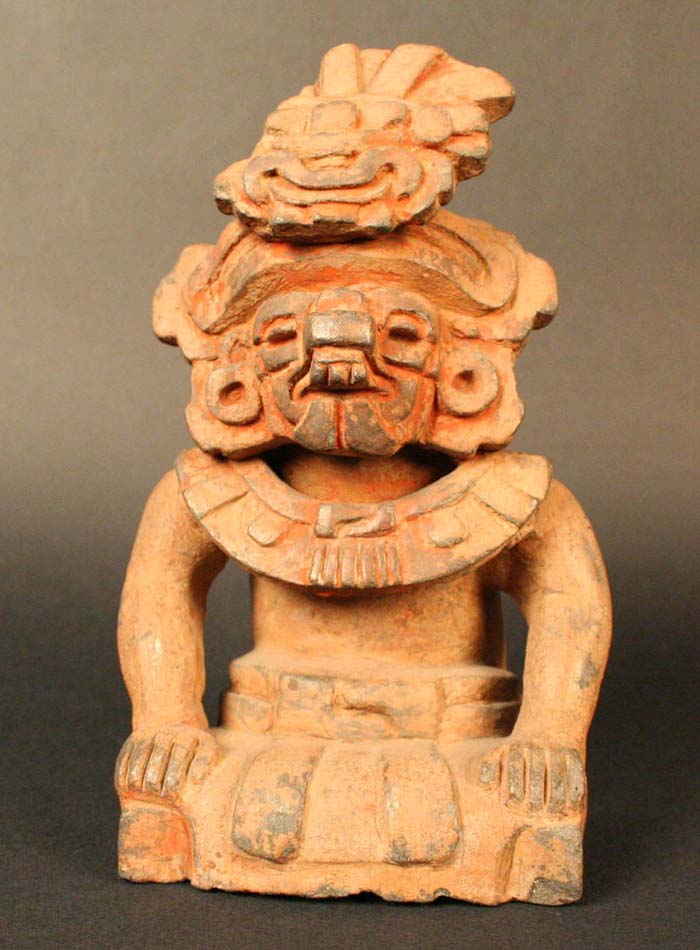
Urna funeraria. Cocijo: Dios de la Lluvia
Materials: Ceramic
300- 900 d.C. Monte Albán III-A , III-B
Measures: 185mm de alto x 97mm de ancho
Part Code: MCHAP 0039
See the profile of this piece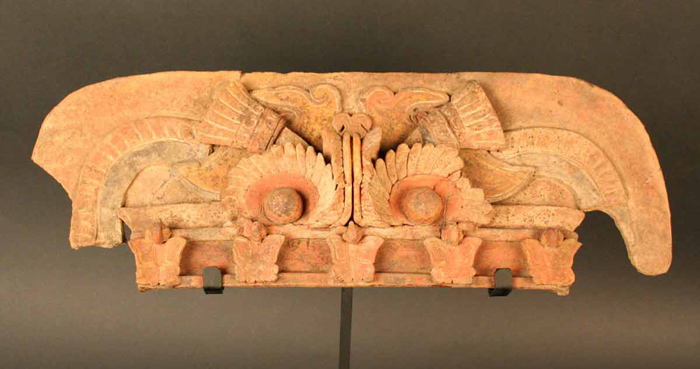
Materials: Ceramic
Clásico 400- 750 d.C. Estilo Tiquisate.
Measures: 128 mm de alto
Part Code: MCHAP 0111
See the profile of this piece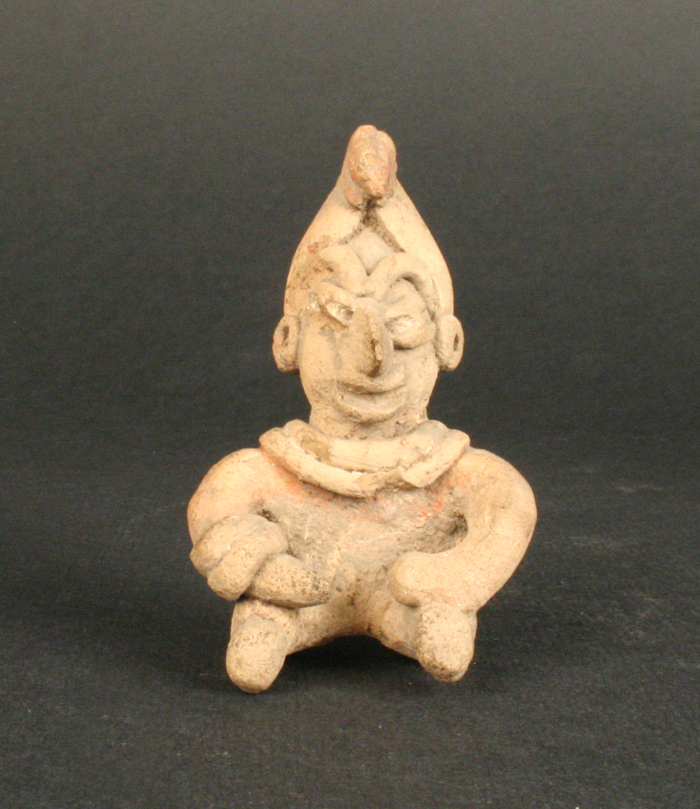
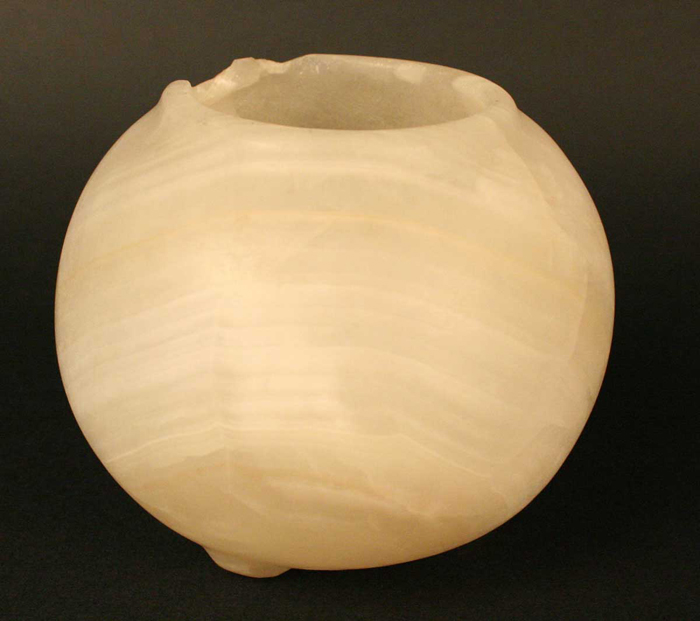
Materials: Stone
Post-Clásico 800 - 1500 d.C.
Measures: 109 mm de alto x 295 mm de ancho
Part Code: MCHAP 0624
See the profile of this piece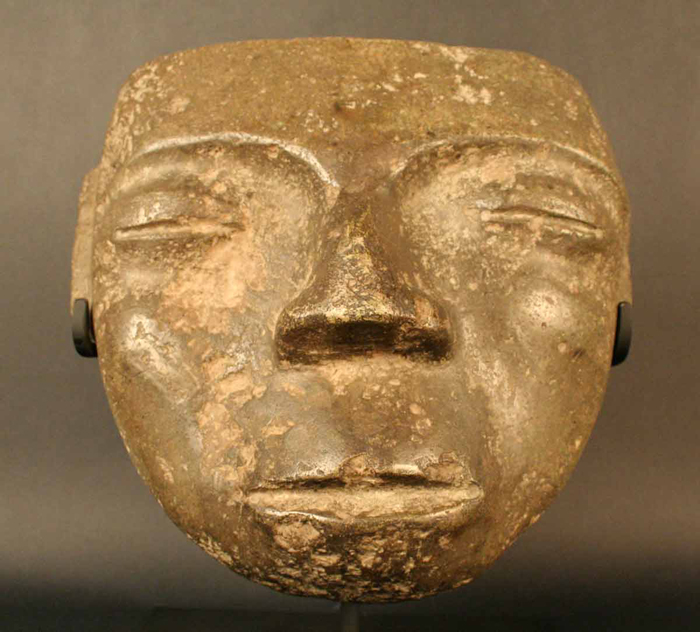
Materials: Stone
Clásico. 400- 750 d.C. Estilo Teotihuanacoide.
Measures: 235 mm de alto x 260 mm de ancho
Part Code: MCHAP 2048
See the profile of this piece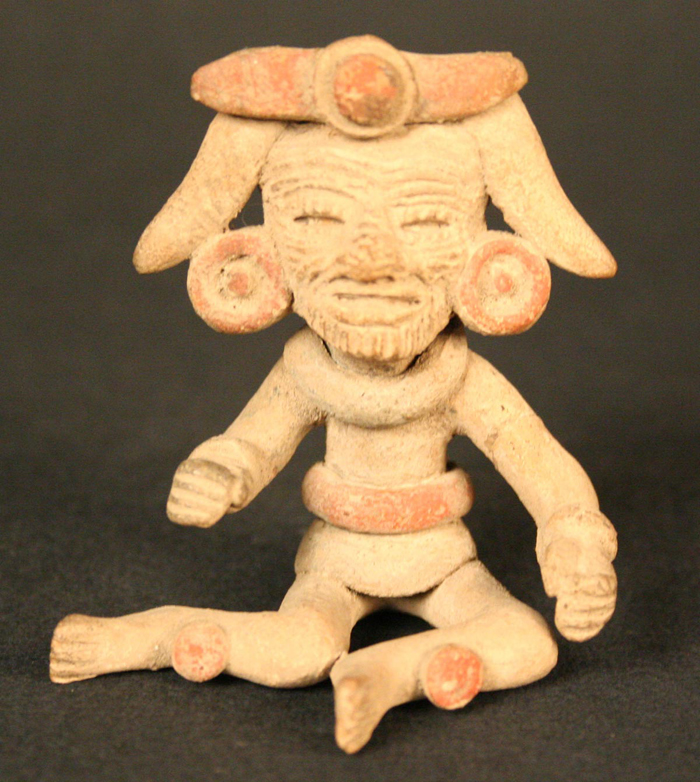
Figurilla antropomorfa masculina
Materials: Ceramic
Clásico 400 - 750 d.C. Fases Xolalpan y Metepec.
Measures: 65 mm de alto x 60 mm de ancho
Part Code: MCHAP 1644
See the profile of this piece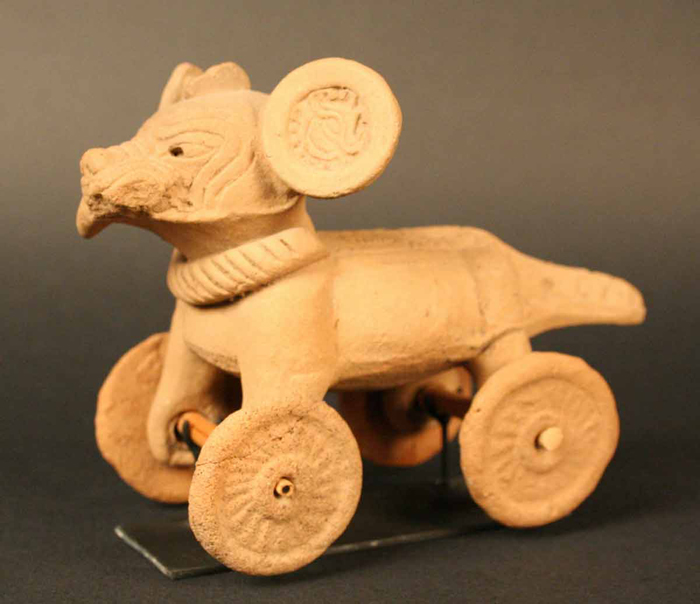
Materials: Ceramic
Clásico Tardío 600- 900 d.C. Estilo Nopiloa, fase II o III.
Measures: 107 mm de alto x 171 mm de largo x 87 mm de ancho
Part Code: MCHAP 2629 ayb
See the profile of this piece